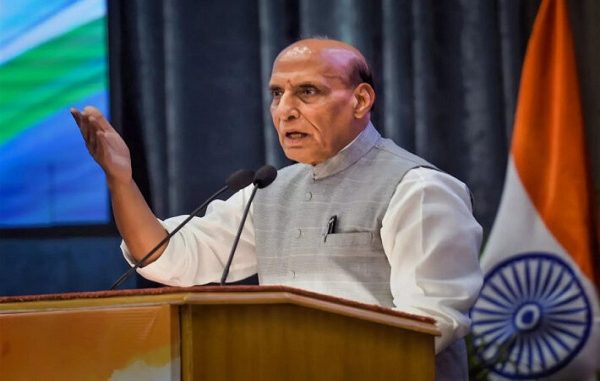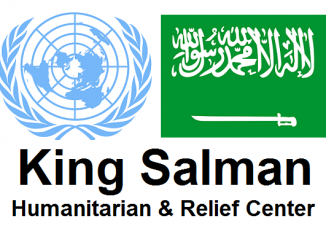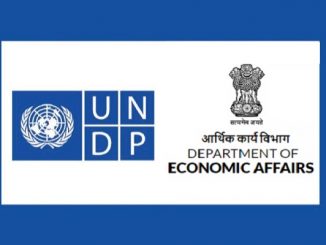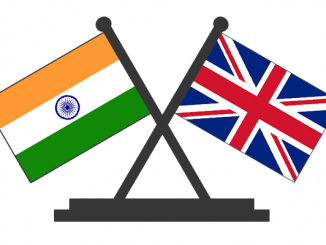
Jun 14: Raksha Mantri Shri Rajnath Singh has called for innovative approaches and enhanced cooperation among responsible nations to ensure the safety & effectiveness of United Nations (UN) Peacekeepers who are deployed in violence-hit regions to maintain stability, prevent conflicts and facilitate the restoration of peace. He was addressing a special commemorative seminar, organised by the Indian Army, to celebrate 75 years of UN Peacekeeping, in New Delhi on June 13, 2023.
Shri Rajnath Singh highlighted the fast-evolving challenges being faced by peacekeepers today and stressed the need to invest more in training, technology & resources for their safety and productivity. He also advocated for the meaningful participation of women in peacekeeping operations, emphasising that their unique contribution during missions in conflict-affected areas must be recognised.
The Raksha Mantri reiterated the necessity to make the UN decision-making bodies, including the Security Council (UNSC), more reflective of the demographic realities of the world. “When India, the most populous nation, does not find a seat as a permanent member of the UNSC, it tends to undermine the moral legitimacy of the UN. Therefore, the time has come for making the UN bodies more democratic and representative of the current realities of our age,” he said.
Shri Rajnath Singh commended the role of UN peacekeeping operations and explained the enthusiastic global support for such missions through the economic concept of ‘externalities’.
“When there is a conflict, it is harmful to the directly involved actors. Moreover, it has negative externalities for those involved indirectly. There is a plethora of negative externalities that have emanated out of the recent Russia-Ukraine conflict. It has led to the food crisis in various African & Asian countries and has fueled an energy crisis in the world. A conflict at a particular place or region creates ripple effects that adversely impact the whole world. So, the rest of the world becomes a stakeholder in resolving the conflict and restoring peace. This is because peace has a positive externality. When conflicting parties restore peace, they benefit in terms of human lives saved, higher economic growth achieved, etc. The rest of the world also benefits as peace fosters stability and encourages economic growth,” the Raksha Mantri said.
Shri Rajnath Singh added that the positive externality of peace and negative externality of war drives the UN, along with the responsible nations, to act towards resolving any conflict. This action is manifested in terms of deployment of UN peacekeeping missions in conflict zones, he said.
India has a rich legacy of contribution to UN Peacekeeping operations and is one of the largest contributors of troops. It has contributed approximately 2.75 lakh troops to peacekeeping missions so far, with around 5,900 troops currently deployed in 12 UN missions. Since its first commitment to Korea in 1950, Indian troops have supervised complex, unmanageable peace operations, earning universal admiration for their professional excellence.
The Raksha Mantri expressed gratitude to all the Indians who have served or are currently serving as UN peacekeepers. “Our courageous soldiers, police personnel and civilian experts have demonstrated exceptional dedication and unwavering commitment to the cause of peace. They have selflessly served in some of the most challenging and dangerous environments, embodying the spirit of peacekeeping and upholding the principles enshrined in the UN Charter. Their unwavering commitment, professionalism and sacrifices inspire us all,” he said.
Shri Rajnath Singh extended his condolences to the families who have lost their loved ones in the line of duty and offered them the Government’s support. He called for honouring the sacrifices of the peacekeepers by building a more just, peaceful and inclusive world. “Let us renew our commitment to promoting dialogue, understanding and cooperation among & within the nations. Together, we can build a future where every individual can live in peace, harmony and with dignity,” he added.
In his opening remarks, Chief of the Army Staff General Manoj Pande highlighted India’s contribution to the cause of UN Peacekeeping. He stated that India has close to 5,900 peacekeepers serving around the world on various peacekeeping operations, including female engagement teams in UN Organisation Stabilisation Mission in Congo (MONUSCO) and UN Interim Security Force for Abyei (UNISFA), besides women staff officers and military observers.
The Chief of the Army Staff also underlined the vitality of the UN Peacekeeping amidst the new and complex security challenges which continue to emerge and the readiness of the Indian Army to fulfil the country’s responsibility and commitment to the UN, in close partnership with fellow states.
On the occasion, the Raksha Mantri also unveiled a pictorial compilation of India’s rich and remarkable peacekeeping journey. On the sidelines, a photo exhibition, showcasing the country’s peacekeeping history, was organised. Permanent Representative of India to the UN Smt Ruchira Kamboj addressed the event through a video message. Chief of Defence Staff General Anil Chauhan, UN Resident Coordinator for India Mr Shombi Sharp and senior officers of the Ministry of Defence & Ministry of External Affairs were also among those who attended the event.
The seminar included an overview of Indian UN Peacekeeping by the officials of the Indian Army; an address on the historical assessment of the Indian Army in UN Peacekeeping by Former Head of Mission and Force Commander, UN Protection Force & Padma Bhushan Awardee Lt Gen Satish Nambiar (Retd).
The ideation session moderated by former Vice Chief of the Army Staff Lt Gen Philip Compose (Retd) included the exchange of ideas by former Permanent Representative of India to the UN Ambassador Shri Asoke Mukerji; UN Resident Coordinator for India Mr Shombi Sharp; Former Force Commander MONUSCO & UN Mission in Ethiopia and Eritrea (UNMEE) and former Military Adviser to UN Secretary-General Maj Gen Patrick Cammaert (Retd) on the topic of the relevance of UN Peacekeeping Operations in evolving world order.
The International Day of UN Peacekeepers is observed on May 29 every year to honour the professionalism, dedication & courage of those serving in UN peacekeeping operations and remember those who have laid down their lives for the cause of peace
Disclaimer: We donot claim that the images used as part of the news published are always owned by us. From time to time, we use images sourced as part of news or any related images or representations. Kindly take a look at our image usage policy on how we select the image that are used as part of the news.


